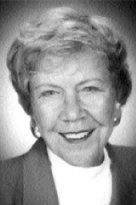The Oregon Office of Student Access and Completion (OSAC), formerly known as the Oregon Student Access Commission and established by the Oregon Legislature in 1959 as the Oregon Student Assistance Commission, is primarily charged with administering student financial aid programs, and through its Office of Degree Authorization, authorizing and regulating the granting of degrees by private educational institutions within the U.S. state of Oregon.
The Oregon Office of Degree Authorization (ODA) is a unit of the Office of Student Access and Completion, with responsibilities related to maintaining high standards in private higher education institutions in Oregon. ODA administers laws and provides oversight of private colleges and universities offering degree programs in the state, validates individual claims of degrees, enforces the closure of substandard or fraudulent higher education programs in the state, and enforces policy for publicly funded postsecondary programs and locations. It was formerly a unit of the Oregon Student Access Commission (OSAC), which became Oregon Student Assistance Commission prior to January 1, 2012. Its functions moved to the Oregon Higher Education Coordinating Commission as part of the Office of Student Access and Completion in July 2012.

In the United States, a state is a constituent political entity, of which there are currently 50. Bound together in a political union, each state holds governmental jurisdiction over a separate and defined geographic territory and shares its sovereignty with the federal government. Due to this shared sovereignty, Americans are citizens both of the federal republic and of the state in which they reside. State citizenship and residency are flexible, and no government approval is required to move between states, except for persons restricted by certain types of court orders. Four states use the term commonwealth rather than state in their full official names.
Contents
On January 1, 2012, the Oregon Student Assistance Commission became the Oregon Student Access Commission. [1] Under state legislation enacted in 2011, governance of the Office of Degree Authorization moved to the new Oregon Higher Education Coordinating Commission on July 1, 2012. [2] [3] [4] By July 1, 2014, OSAC had been renamed the Oregon "Office of Student Access and Completion". [5]

The Oregon Higher Education Coordinating Commission is a volunteer state board established in 2011 in the U.S. state of Oregon, with responsibilities for advising the governor, the legislature and the Chief Education Office on statewide postsecondary education policies and funding. The fourteen-member commission has authorities for "development of biennial budget recommendations for public postsecondary education in Oregon, making funding allocations to Oregon's public community colleges and public universities, approving new academic programs for the public institutions, allocating Oregon Opportunity Grants, authorizing degrees that are proposed by private and out-of-state (distance) providers, licensing private career and trade schools, overseeing programs for veterans, and additional legislative directives".



